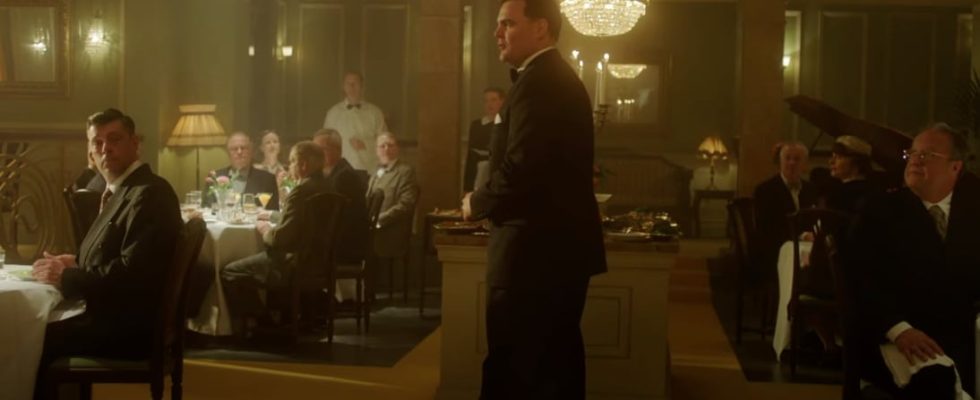I’m on the seventh episode of the second season of the Swedish series Restaurant, broadcast for free by Arte and not for free on Canal +. There are four seasons of ten fifty-eight minute episodes. It’s long, slower than Bergman, and as always when a series is successful, it seems better with each episode.
Whether it takes place in a police station, a hospital, a Yorkshire castle or a law firm, it’s not the places that count, but the actors, the characters they play and what we make them say. The restaurant is only as good as the doors, the corridors and the multiple possibilities of entrances and exits favoring the circulation of the intrigues. And as in all stories that stand up, the bad guy holds the rope.
In the art of making himself hated, Gustaf Löwander, played by Mattias Nordkvist, shows himself to be the most servile, the most obsequious and hypocritical of the lunatics. The dowager’s eldest son, Gustaf managed his mother’s restaurant very poorly, so much so that at the end of the war the most famous establishment in Stockholm found itself in complete disarray. Hitler died but the collaborators remained, converted into ration ticket trafficking and extortion. Gustaf finds nothing better than to call on one of these scoundrels to replenish the restaurant’s cash register. To calm his guilty conscience, he drinks, and the drunkenness awakens in him infamous impulses which push him to cheat on his wife with young boys in specialized houses, run by his creditor who can now blackmail him with photos of his frolics.
Gustaf has not yet hit rock bottom when Peter, his little brother, arrives, returning from military service. The fact that Sweden remained neutral during the war undoubtedly explains its good looks. He is handsome, slender, competent, democratic, he has everything to please us and make his big brother Gustaf jealous, but that is not yet enough to the screenwriters’ taste: the prodigal son has taken up with a young Jewish girl, camp survivor, with whom he is in love. This daring connection allows the creators of the series to add anti-Semitism to the burden of Gustaf who, like a suicidal scorpion, decides to sell his shares in the family restaurant to set up his own establishment… which goes bankrupt even before the inauguration.
Gustaf hits rock bottom, he is ruined, dishonored in the eyes of his wife who caught him doing his dirty things with a young delivery man. We don’t have time to wonder what else the writers are going to put him through when this moron Gustaf decides to consult a psychiatrist to cure his nasty sexual inclinations. A scoundrel, a scoundrel and a half, the psychiatrist prescribed the patient an electroshock session. This is the big twist in the series: Gustaf has met dumber and meaner than him. Now he makes us feel sorry for him. We almost want him to get away with it. May his wife, so devoted, tolerant and loving, come and save him, once again, from his latest stupidity…
We could feel it coming, in fact, it was too much burden on the shoulders of the failed eldest. And we saw the kind, the impeccable, the always elegant little brother Peter who, seemingly insignificant, over the course of family adventures and in the heat of commercial realities, was beginning to stiffen up. He had saved the bankrupt company, united his family in danger, he had faced violence, in turn using force when necessary (a good and unexpected punch in the face which made us so good), he had achieved the feat of subjecting the mafioso to his law, that of law. Ah really, we really loved him and his love story with the wonderful survivor. But now our ideal son-in-law shows authoritarian tendencies. Will they have the ultimate cruelty, our screenwriters, to make him odious to us?
.
